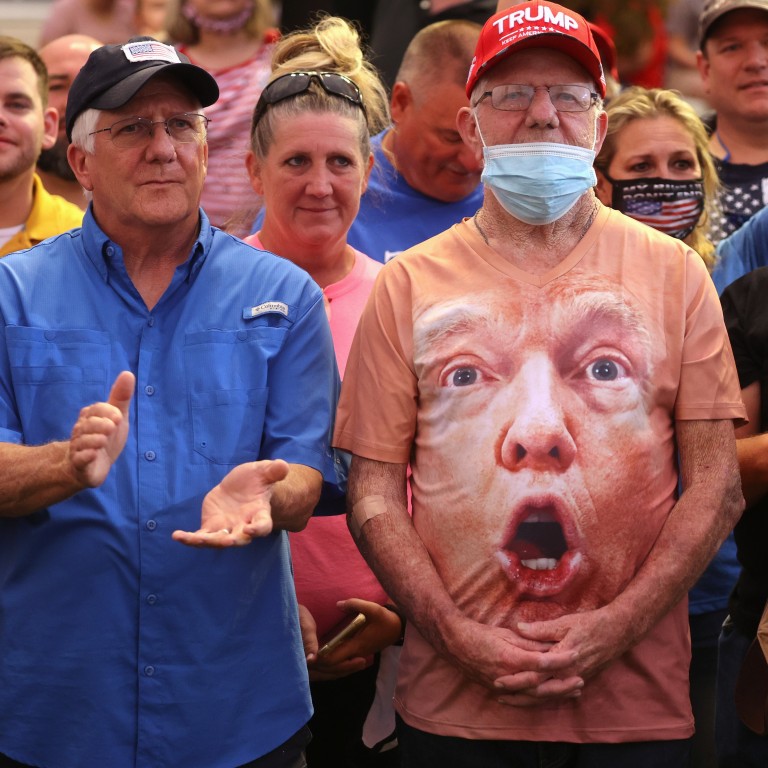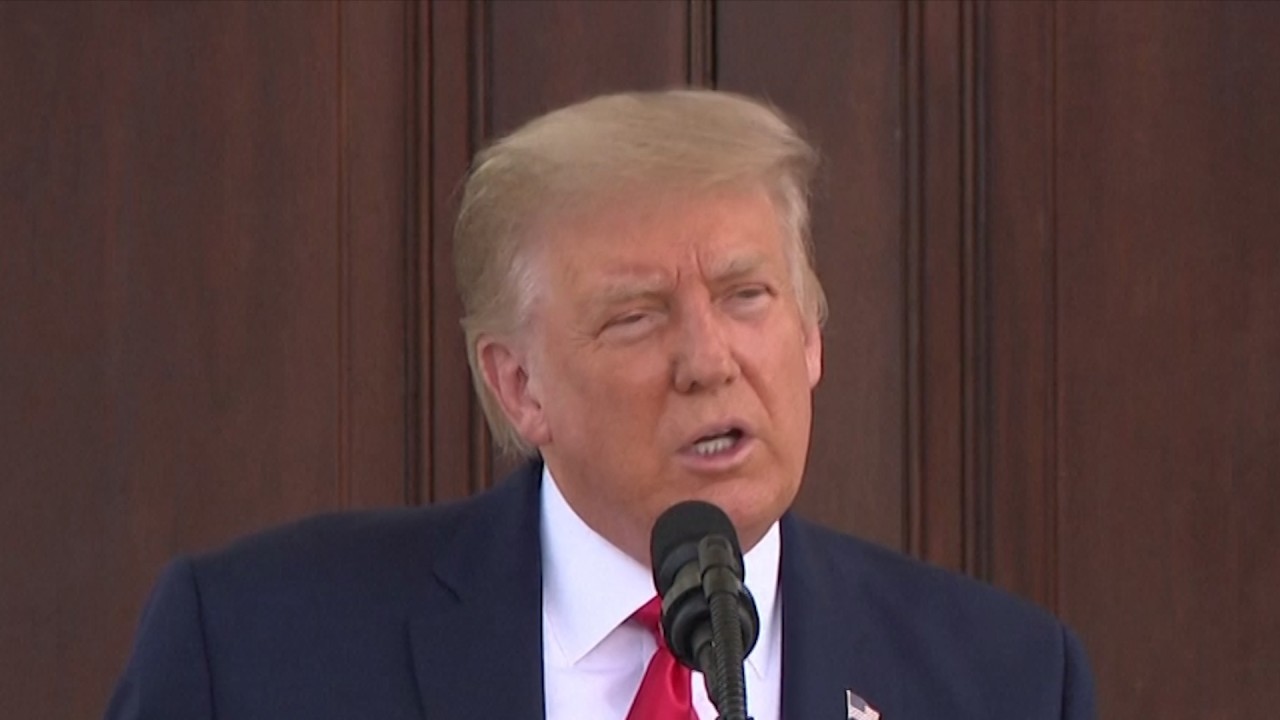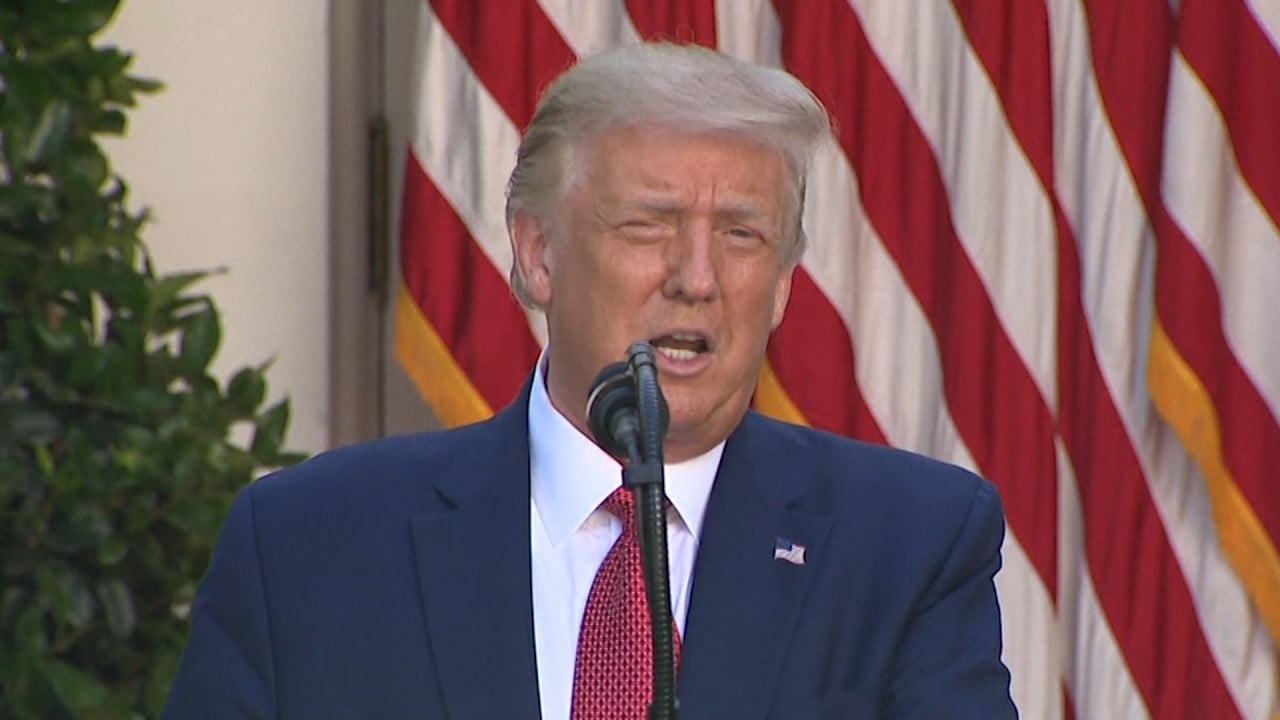
How you should navigate Hong Kong, China stocks during an increasingly hostile Trump presidency
- Consumer-related stocks historically outperform when US-China tensions rise, according to UBS
- Chinese technology stocks are exposed to further Trump sanctions, analysts say
US President Donald Trump’s turbulent relationship with Beijing has made investing in Hong Kong and China stocks an extremely dicey endeavour over the past four years.
In this light, investors should learn from the past and focus on opportunities arising from China’s domestic consumption story, and avoid technology companies with exposure to the US, no matter how the election turns out, according to strategists and traders.
“A Joe Biden victory does not prevent Trump from taking punitive measures against China on his way out of office, to solidify his legacy as ‘the man who took on China’. So Chinese equities, and especially the technology sector, will remain at risk,” said Matt Gertken, geopolitical strategist at BCA Research.

00:49
Donald Trump again threatens to scale back US economic ties with China
US-China relations have plunged to a new low this year, just months after the signing of the phase one trade deal. From the origins of the coronavirus to Hong Kong’s national security law to human rights issues in Xinjiang, Washington and Beijing are locked in disputes over a growing range of issues.
Trump smacks Hong Kong’s new tech stock index amid heightened fears of cold war with China
This might not be fully reflected in global financial markets yet, according to analysts. The S&P 500 has risen about 50 per cent following a crash in March led by the Covid-19 pandemic, despite a recent sell-off driven by megacap technology shares. The Shanghai Composite Index has returned 23 per cent over the same period.
“Financial markets have ignored this negative news because the US and China are pumping themselves up with monetary and fiscal stimulus. Going forward, either the stimulus will falter, or the US-China conflict will escalate to a negative surprise for markets,” Gertken said.

01:22
US-China trade talks postponed as Trump says he does not want to talk to China
Trump was likely to unleash more punitive measures, as the US Congress looks set to add even more fiscal stimulus before the election, according to Gertken. US actions, along with Chinese reactions, will trigger a pullback in US, Chinese and Hong Kong shares, he said.
And if Trump is re-elected, his protectionism and aggressive foreign policy will certainly make Chinese and Hong Kong markets suffer, because investors could well expect a “phase two” trade war, Gertken said.
If history is any guide, investors should pay attention to consumer-related stocks in China and Hong Kong when tensions rise, according to researchers at UBS who reviewed and analysed market performance between April 2018 and January this year.
Hong Kong stock investors shrug off Trump move to revoke city’s special status
They found sectors that outperformed during escalating US-China tensions included food and beverage, tobacco, utilities, insurance and pharmaceuticals, in both the onshore A-share market and the Hong Kong market. Additionally, consumer durables, apparel, retail, internet, health care and consumer services also did well in Hong Kong, according to Wendy Liu, China strategist at UBS Global Research.
On the other hand, technology hardware, software and semiconductor stocks outperformed when tensions eased. Interestingly, onshore “A shares have grown less sensitive to the re-escalation and de-escalation” in tensions over this period, Liu said.

02:09
Trump signs Hong Kong Autonomy Act, ends city’s preferential trade status over national security law
“China has definitely transformed into more of a self sustainable country over the past few years, and this is also a key reason A shares have outperformed H shares over the past four years,” said Ken Wong, portfolio manager at Eastspring Investments, referring to companies that are incorporated in mainland China but trade on the Hong Kong stock exchange.
The CSI 300 Index, which tracks the largest companies listed in Shanghai and Shenzhen, has risen 40 per cent since Trump took office in January 2017. The Hang Seng Index, in comparison, has returned just 7 per cent.
Wong, who said markets will remain volatile “in the foreseeable future” given the geopolitical risks, was hopeful that China’s onshore market will withstand the pressure, thanks to the government’s accommodative fiscal and monetary policies.
“We remain positive on Chinese stocks and, in particular, China A shares. In China offshore, we remain bullish on IT hardware technology names, while onshore, we like consumer discretionary names, given the strong revival of consumer spending throughout China,” he said.

